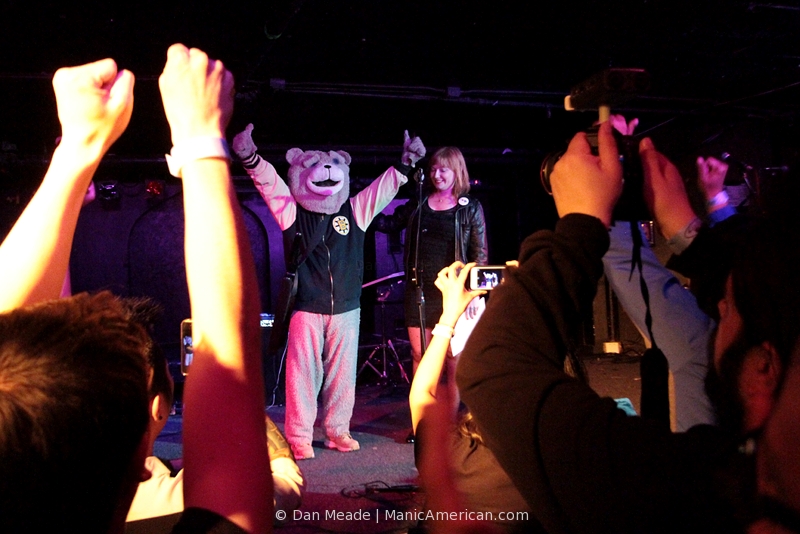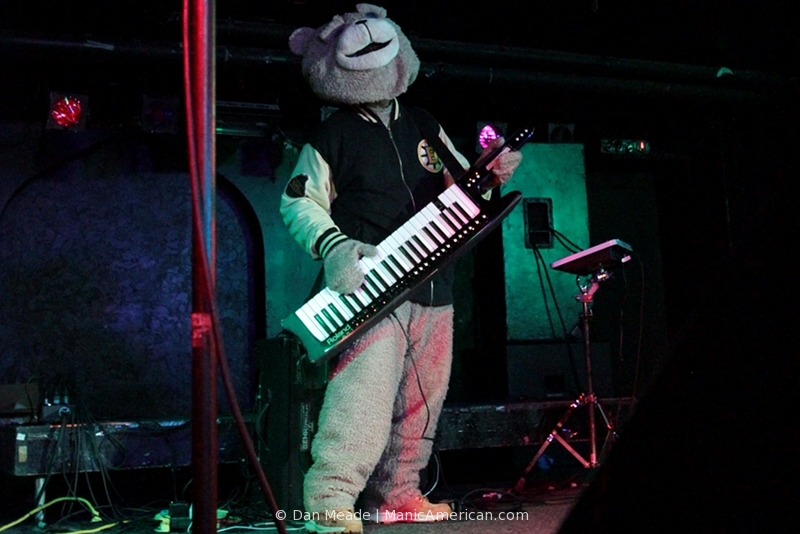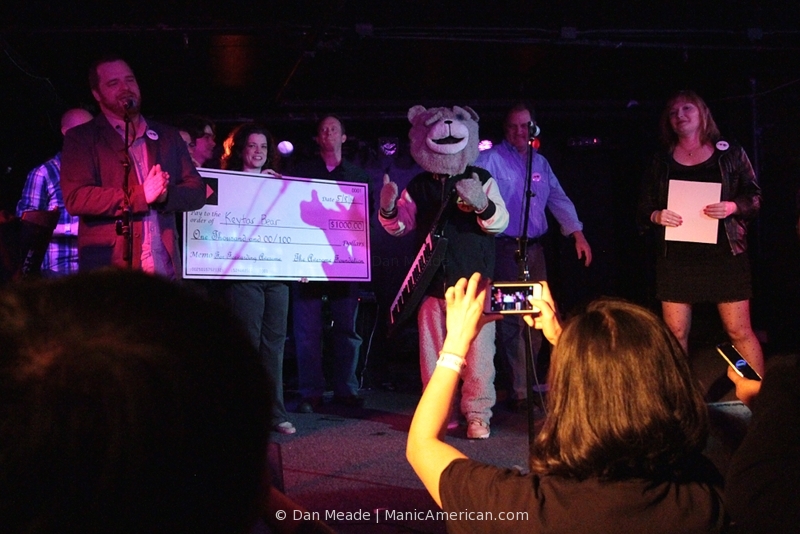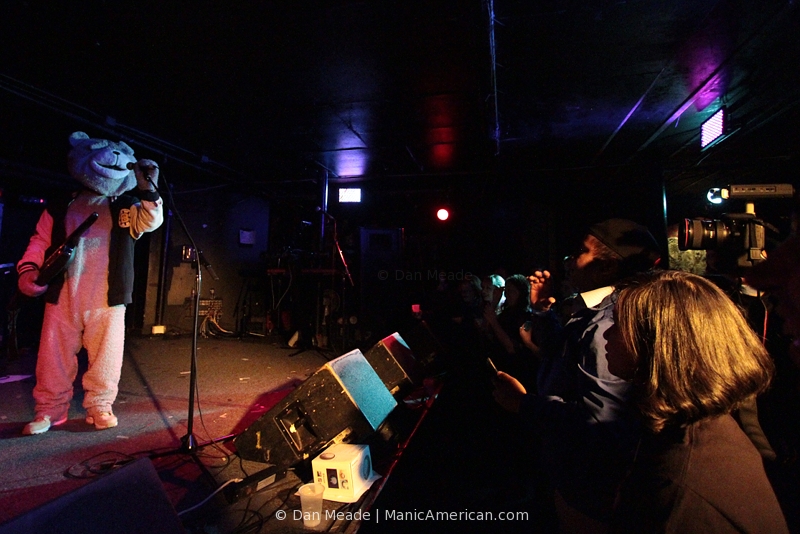Keytar Bear is a street musician best known for playing in and around Boston. He is a man in a bear suit who plays the keytar. Sometimes he also wears a Bruins jacket. That’s all most people know about him, and for a time, that was all you needed to know about him.![]()
But then Keytar Bear was attacked, twice. When word spread that both his nose and keytar had been broken a groundswell of support arose. Online donations and a fundraiser combined to raise over $9,000 for him. In Cambridge, the date of the fundraiser was even declared “Keytar Bear & Abby Taylor Day” after the man of the hour and the organizer of the event.
As these events unfolded more and more information about Keytar Bear came out, revealing him to be much more complex than his man-in-a-bear-suit act implies. And yet, despite everything that has already been written, there are a couple questions that I’ve been asking myself that no one else has been able to answer.
At the end of Keytar Bear’s set during the fundraiser, and after all the cheering and dancing had died down, Keytar Bear approached the microphone at center stage. He took the mic into his matted paw and stopped. He looked at it. He looked at us. He looked into a crowd of 200 or so people who had come out to support him. He looked like he was about to speak in public for the first time ever.
Keytar Bear stopped. Keytar Bear tried to start again. His furry head moved back. His furry head moved forth. Then that immovable, unreadable, battered and Sphinx-like head started to emote. You could read Keytar Bear’s thoughts through his mask.
Keytar Bear wanted to speak. He wanted to say something poignant, something profound. He wanted to thank us, all of us. But he couldn’t. He couldn’t talk through his mask.
He thought of taking off his mask. He thought of the cameras and smartphones in the crowd. He thought of the tweets and posts proclaiming “KEYTAR BEAR UNMASKED.”
It would be the end of Keytar Bear as we know him. “Keytar Bear” would become the person under the mask, with a specific name, and a specific race.
Keytar Bear is universally referred to as “he.” If you look closely, you can see dark skin poking through the gap between his bear suit and mask. Those are the only identifying features he reveals in public. But a few other details about the man behind the mask have come out:
- Keytar Bear is doing his part to “kill racism.” When in costume, “you don’t know if [I’m] black or white, you just see a little bear. He’s playing music and he’s having fun.” – Keytar Bear in an interview with Steve Annear of Boston Magazine
- When not in character, he teaches music and dance in Boston, New York, and Philadelphia. – Annear interview
- Keytar Bear didn’t defend himself against his attackers because he “knows it will look like a black kid beating on a white kid, and we know what the cops will probably think about that.” – Michael Marotta of Vanyaland
- He has had trouble making a living, to the point that he doesn’t have a bank account. – Abby Taylor to Amelia Mason of WBUR’s ARTery
- He didn’t press charges because of “how his particular race has been treated by the police for a very long time, and also the kind of discrimination that happens in courts when there’s a white kid and a black kid.” – Taylor to Mason
- He may have once tried being a mere “keytar man” in Boston, but to much less acclaim. – Universal Hub
- Keytar Bear has publicity forgiven his attackers. – Statement released to Vanyaland
The picture that emerges is of an artist dealing with financial problems and living in a world that doesn’t treat all people equally. And now, after two incidents of violence, that artist may have received the windfall needed to get his life on track.
How much of this was going through Keytar Bear’s mind as he paused before that microphone?
Was he thinking back to the attacks that led to the fundraiser? He had shown restraint then, kept his emotions under control. But this was a vastly different situation.
Or was he thinking about all the people who had rallied behind him, supported him, and helped him since his attacks?
Or was he thinking that “Keytar Bear” might not be so popular if his identity was revealed?
Or was he thinking about unmasking himself despite that risk? If there was ever going to be a time to reveal his identity, surely it was in a room full of supporters.
Whatever he was thinking, Keytar Bear ultimately decided to say nothing. He stepped back, held up his paws in a mixed gesture of “I can’t” and “Thank you,” and walked offstage.
As much as I’ve wondered about what Keytar Bear was thinking before that microphone, there are a couple other questions that I’ve asked myself over and over since that night:
If that were me under the bear mask, would I have had the restraint to not lash out at my attackers?
Would I have been able to forgive them, so quickly and so publicly?
Would I have risked my entire artistic endeavor by taking off my mask to thank my supporters?
Would you?
Essay and photos by Dan Meade
Date of Fundraiser: May 8, 2014
Date of Publication: May 20, 2014



